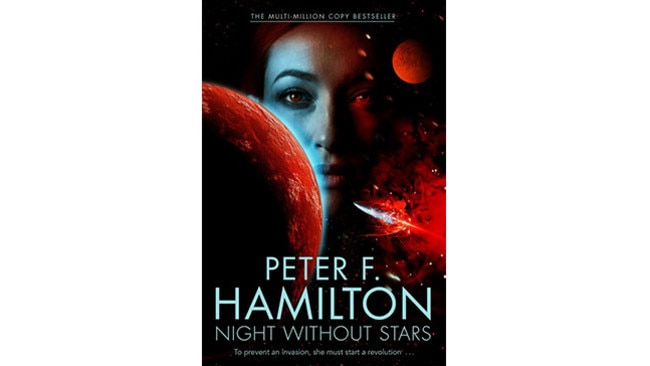Sci-fi writer Peter F. Hamilton takes humans to a galaxy far, far away
A great Patrick F. Hamilton novel demands a formidable foe, and here the author again delivers.

Peter F. Hamilton is a master of epic science fiction. The British author is best known for multi-volume space operas that run to thousands of pages, providing a gigantic canvas on which to build new worlds and explore new societies and mind-popping technologies.
Hamilton’s main focus is on existential threats to advanced human civilisations. The Night’s Dawn trilogy saw an interstellar empire collapse under the weight of the returning dead; the Commonwealth saga involved a society threatened by an ant-like alien invader; and in the Void series a mysterious and impenetrable black hole threatened to devour the galaxy.
The latter two collections take place in the Commonwealth, a human civilisation of countless planets connected by manufactured wormholes. The society is complex and diverse, with mortality conquered via clones, rejuvenation and downloading of people’s minds into giant artificial intelligence systems. However, unlike the utopian society of Iain Banks’s Culture novels, the Commonwealth is also surprisingly vulnerable.
Hamilton’s latest two-book series is Chronicle of the Fallers. It started with The Abyss Beyond Dreams and now concludes with Night Without Stars. These stories are set in the middle of the other Commonwealth novels, so it is best to read them first.
Having said that, the new series is mostly self-contained. The story takes place largely on one planet, Bienvenido, which has been expelled from the Void. Night Without Stars begins with its human population isolated at the far reaches of the universe, seemingly beyond the assistance of the Commonwealth.
This produces a significant break from Hamilton’s other Commonwealth novels. There is little in the way of new technologies. Instead, the inhabitants of Bienvenido have regressed to a society based on combustion engines and NASA-era spaceflight.
The scale is also more constrained regarding characters. There are fewer protagonists, and as a result they are more connected and their relationships more intimate.
A great Hamilton novel demands a formidable foe, and here the author again delivers. The Fallers are a relentless, aggressive species with only one mission: to eradicate all life on Bienvenido and make the planet their own. They carry out their genocidal purpose by absorbing and then mimicking every life form they encounter.
The Fallers have arrived at Bienvenido on spacefaring treelike structures that periodically bombard the planet with eggs. Many eggs are intercepted and destroyed, while others lie in wait, ready to absorb and then hatch a copied human or animal.
Over the centuries, the Fallers have infiltrated human society to its deepest levels, building their numbers and biding their time until they are ready to unleash an apocalypse on the stranded population.
The threat of the Fallers has enabled the human leaders to forge a militaristic community based on oppression and control. The society has developed its own secret police, the PSR, who hunt dissenters, especially ‘‘eliters’’ who have retained genetic remnants of Commonwealth technology. The PSR has few limits and even fewer scruples and deploys interrogation and torture to maintain the status quo.
The result is a community that obsesses about internal conspiracies while ignoring and suppressing information about the larger threat posed by the Fallers. This produces a deep and interesting story that is as much one of resisting the alien invader as it is of throwing off the shackles of political oppression.
Conflicts occur on both fronts as key characters find their consciences and loyalties tested. This volatile mix is then upended by the arrival of a Commonwealth space pod. It becomes unclear whether the human society has the capacity, and the will, to survive even with the benefit of Commonwealth help.
Night Without Stars brings to an end another excellent series by Hamilton. Some readers will not find it as satisfying as his other works, with its smaller scale and lack of new futuristic technologies. However, there are more than enough compensations. Less epic in its scope, but more intense and character-bound as a result, it deserves to be seen as one of Hamilton’s finest works.
George Williams, dean of law at the University of NSW, is a devotee of science-fiction writing.
Night Without Stars
By Peter F. Hamilton
Macmillan, 750pp, $32.99


